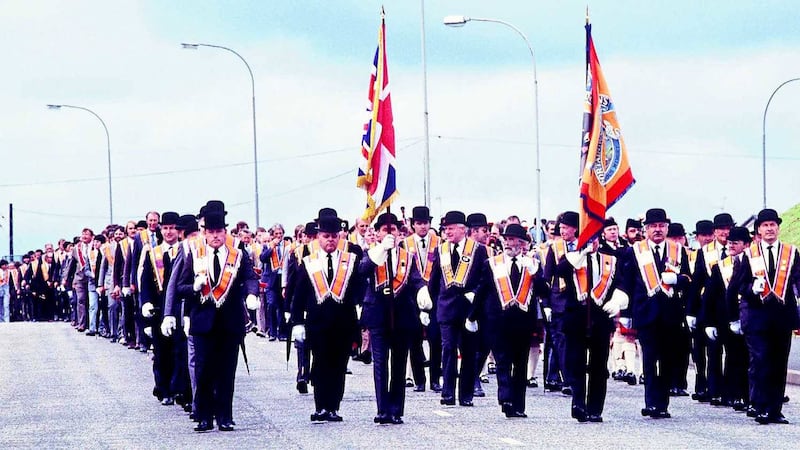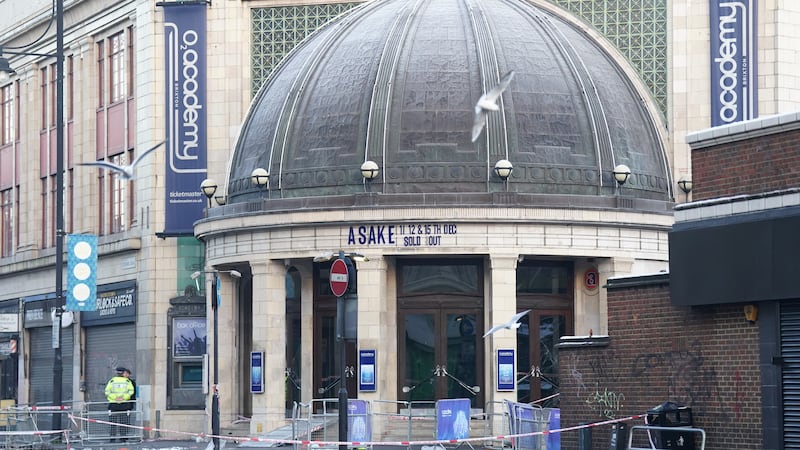THE difficulties posed for the Anglo Irish Agreement over an RUC decision to allow an Orange parade to pass along the Garvaghy Road area of Portadown on 12 July 1986 are highlighted in declassified files released this week.
Despite an initial RUC decision, communicated to the Secretary of State Tom King that only a Church parade on 6 July would be permitted to pass through the Nationalist area of the north Armagh town, the RUC finally decided, after negotiations with Orange and Unionist leaders, to allow a July 12 march through the Catholic Garvaghy Road. This decision was seen by nationalists in general as 'provocative and triumphalist'.
To make matters worse, it became clear that the RUC had refused a request for consultations from the local Nationalist community.
The march was followed by Loyalist attacks on Catholic homes in Rasharkin, Co Antrim and elsewhere.
In a confidential report on the Portadown decision for the Secretary of State, dated 17 July 1986, J E Mc-Connell of the NIO felt that the only winner had been the DUP leader Ian Paisley 'who gained the kudos for having led "successful negotiations with the RUC"' while upstaging local UUP politicians who 'were trying to reach an acceptable compromise'.
The most worrying aspect of the Twelfth and its accompanying violence, he noted, was the inevitable increase in community tension across NI and 'the re-emergence of vicious sectarian attacks'.
The RUC decision in Portadown provoked a strong statement from the Minister for Foreign Affairs, Peter Barry on 15 July 1986 alleging that 'members of the minority community had been left unprotected'. It was 'intolerable that provocative demands by the Unionist marchers had been listened to and that the Nationalists had been denied equal treatment under the law'. The Minister's statement and a riposte by Tom King, supporting the RUC and seen as a rebuke to Dublin, had, in the words of the NIO official, 'brought Anglo-Irish relations in general, and Barry-King relations in particular, to their lowest point' since the signing of the Agreement in November 1985.
In the wake of the violence the British received a seven-page analysis from the Irish, passed through the Maryfield Secretriat on 16 July as representing Mr Barry's position. Its main points were that a) 'expectations had been raised among Catholics that the 12 and 14 July marches would not be allowed through Catholic areas', especially in light of the AIA; b) that police assurances that the march would not be allowed down Garvaghy Road had been 'treacherously breached' ('the word current in Dublin', the official noted) and c) that the decision to allow the march ought to have been a purely policing one.'


